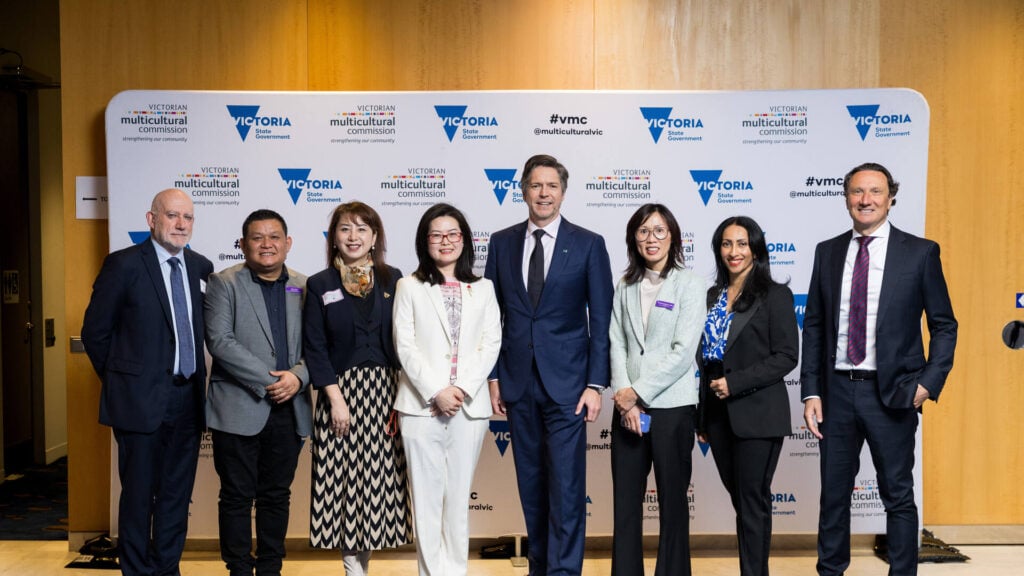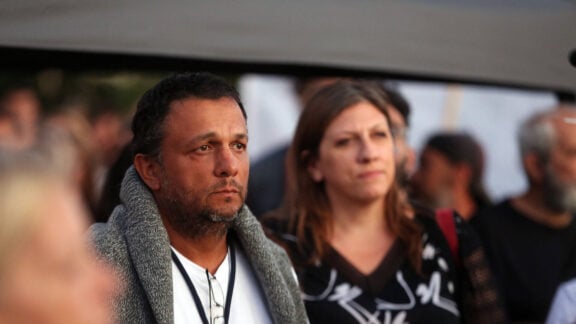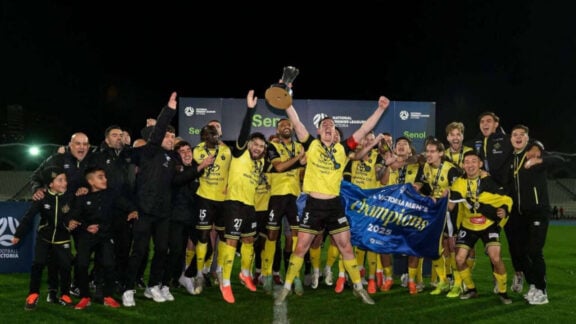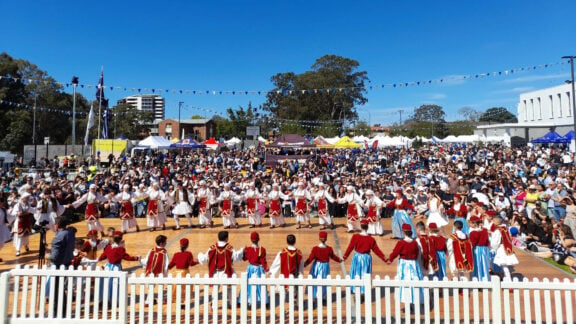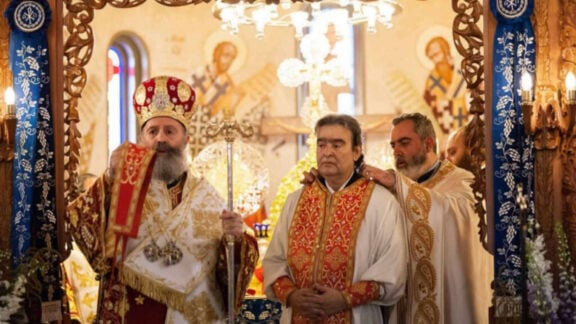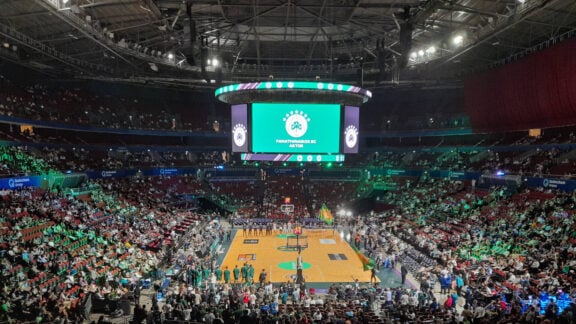More than 150 people gathered in Melbourne last night for a forum spotlighting the vital role multicultural businesses play in Victoria’s economic strength.
Hosted by the Victorian Multicultural Commission (VMC) and led by Commissioner Bill Papastergiadis OAM—also President of the Greek Community of Melbourne—the event brought together representatives from small to medium businesses, industry bodies, and community organisations.
Held at the Victorian Government Investment Centre on August 4, the forum underscored the contribution of diverse communities to the state’s business landscape.
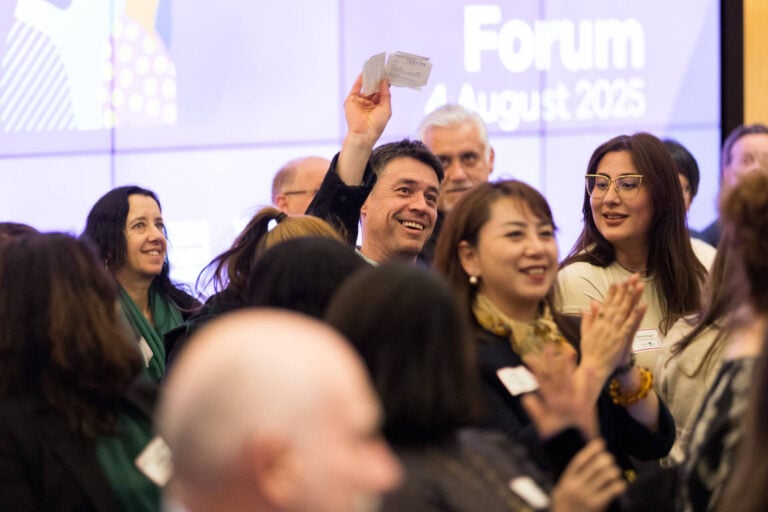
Diversity as a strength: Leaders champion multicultural business
Papastergiadis, fresh from a holiday in Greece, noted that Melbourne is one of the most culturally diverse cities in the world. While he loved his time abroad, he said, “Europe could learn much from the way Victoria has managed its diversity” and the “impact of cultural diversity in the economic fabric of this city and state.”
“Victoria’s diverse multicultural businesses not only contribute to our economic prosperity, they are also the bridges between communities, fostering understanding, respect and harmony.”
He added that Victoria’s diversity “is no more evident than in the make-up and ownership of small businesses”.
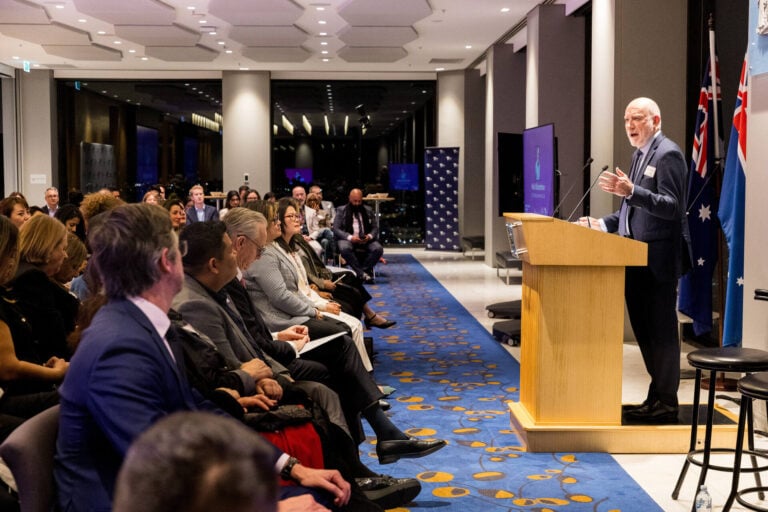
“Our event brings these businesses and voices together and enables them to be heard. Our event allowed these business owners to collaborate and interact,” Papastergiadis said.
He went on to say that minister for small business being present “ensures that multicultural small business concerns are listened”.
“In this way, any future plan developed by Government incorporates our diverse needs and voices so that we have a functioning multicultural business framework.”
He illustrated this blend of business and diversity with a personal anecdote about enjoying a “Turkish or Greek coffee and Turkish bourek, or spanakopita” shortly after landing.
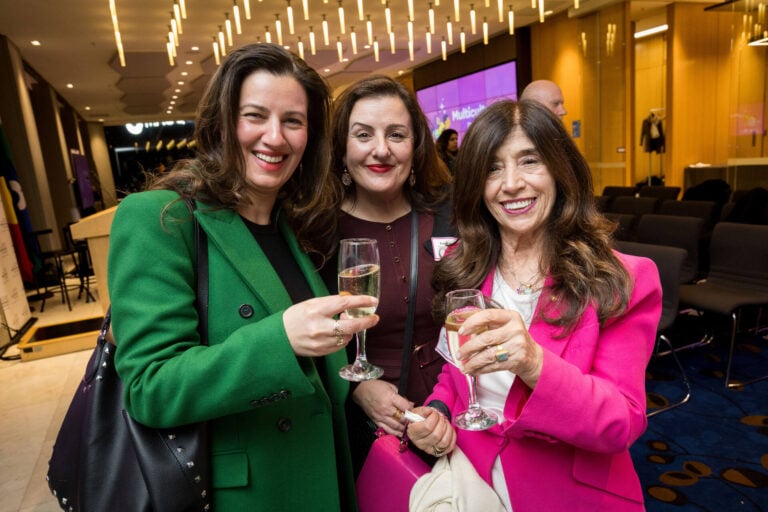
New initiatives to support multicultural precincts
Minister for Small Business and Employment Natalie Suleyman said, “from Oakleigh to Box Hill, we have seen support rolled out for businesses” from the Victorian Government. She added that the government wants multicultural businesses to “continue to grow, and of course, to continue that economic activity locally.”
As part of that support, she said, “We are partnering with local councils, so that we can upgrade shopping precincts and invest in free skills and training for small businesses.” Suleyman also announced the upcoming launch of the Multicultural Precinct Good Practices Guide— “the first of its kind in Australia.”
“This guide will help improve the way businesses, business associations and councils work together to activate and celebrate their heritage in ways that boost local businesses,” she said.
VMC Chair Vivienne Nguyen spoke about the sense of belonging that multicultural businesses offer, calling them a source of “confidence in the future.”
“In every Victorian suburb or region, a short walk down the main street will reveal many thriving and diverse businesses. The entrepreneurial spirit of many migrants drives growth, vibrancy, and economic prosperity. Victoria’s successful multicultural history has shaped a flourishing economic, social, and cultural landscape.”
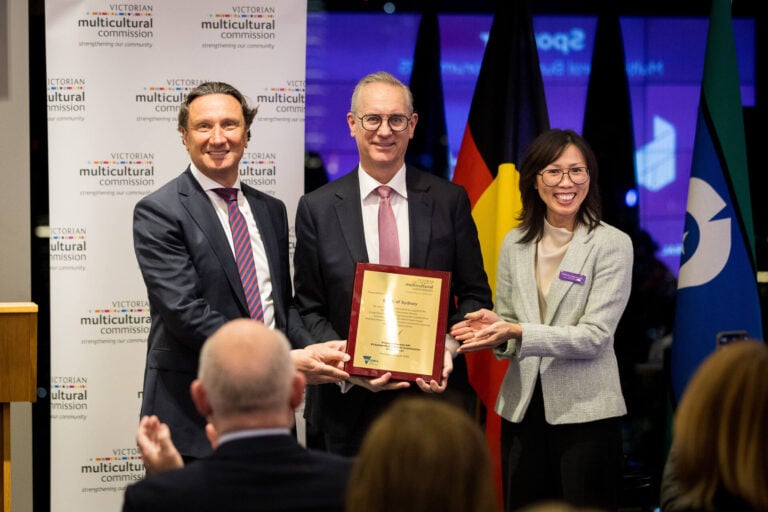
Melbourne Lord Mayor Nicholas Reece, in keeping with the evening’s bonhomie, thanked Papastergiadis and, referencing his return from Greece, joked, “Isn’t Bill looking so tanned, everybody?”—drawing laughter.
Reece said he is “constantly reminded of the miracle that is Melbourne and Victoria,” a city home to people from over 160 backgrounds, speaking 150 languages and practicing 80 faiths. He noted Melbourne’s status as the world’s fourth most liveable city, aided by “competitive costs and a strong stable economy.”
“We are a city that has business in its DNA,” Reece said. “Melbourne was born by people who came for a new life, to have a go, and build a business.” He cited Helena Rubenstein, “who arrived in this city in the 1880s as a penniless woman from Poland” and went on to build a global makeup empire.
Media and multicultural business: Call for greater collaboration
Papastergiadis then welcomed Melbourne Press Club (MPC) CEO, Nick Richardson, saying media and business—mainstream and multicultural—should collaborate to highlight multicultural success stories.
Richardson agreed, noting the shared “entrepreneurial spirit” between modern journalism and business: “We need passion, we need vision, we need aspiration. And there, the distinguishing features of the good entrepreneur… are also the distinguishing features, I would argue, of the modern journalist.”
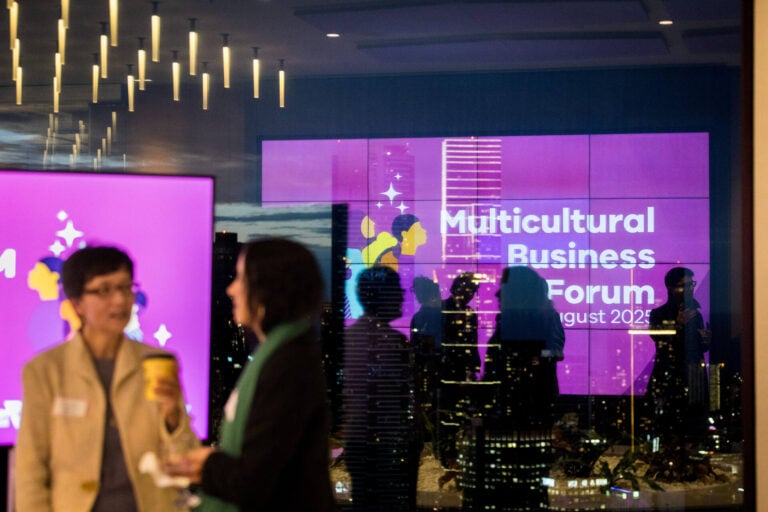
He said the MPC, with more than 500 members state-wide, had until recently not engaged fully with multicultural media, or the businesses that support them. But last year, “we took our first steps toward building those relationships” through a forum with Independent Multicultural Media Australia (IMMA) hosted by Papastergiadis at the Greek Centre.
“The event affirmed to us that there is a strong basis for further conversations about how best the Melbourne Press Club can collaborate with multicultural businesses,” Richardson said.
He said he looked forward to partnering with multicultural businesses and media in major events like the annual Quill Awards and hosting tailored forums.
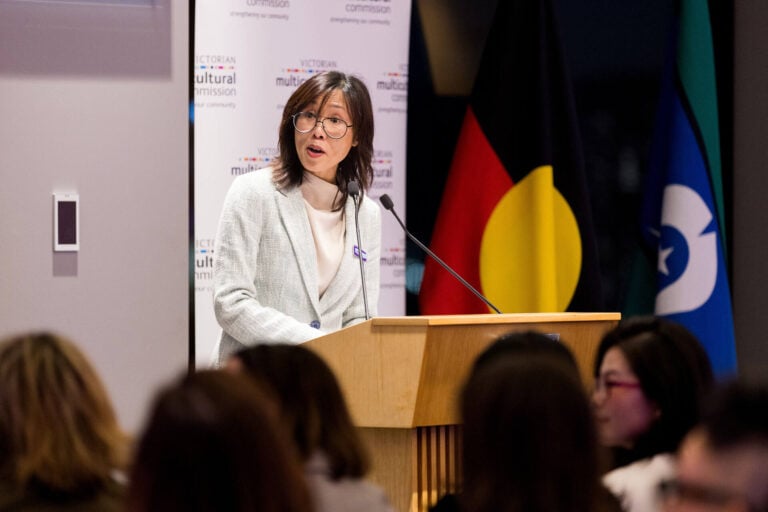
Panel: Unlocking opportunity: Access, representation, and growth
The panel that followed featured Bank of Sydney CEO Melos Sulicich; Multicultural Ministerial Business Council Chair Bihong Wang; and Executive Leader Nithya Gopu Solomon.
Solomon, who is also a classical Indian dancer, said that multicultural businesses, like artists, “need access to mainstream stages,” whether in med tech or retail, and called for better access to capital and equity.
“Culturally diverse businesses don’t often show up at the top of the lists of organisations who can access capital and equity in quite the same way mainstream businesses do,” she said.
“The needs are going to be so nuanced,” and urged deeper understanding of “what resources need to be unlocked” to help diverse businesses flourish.
Turning to the media, Solomon stressed the power of representation. “The more narratives we can hear about successful and diverse businesses… can be hugely powerful.”
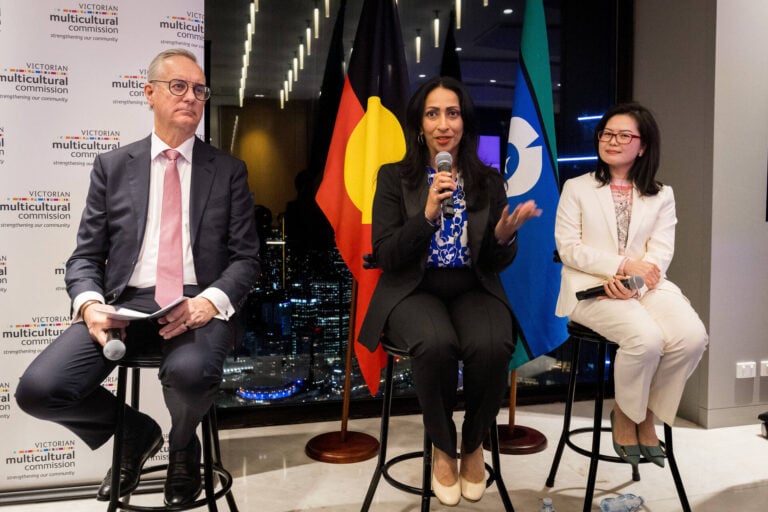
Sulicich focused on employment and regional development.
“Employment plays a significant role in developing a sense of belonging, purpose and identity for migrants and refugees. Multicultural businesses safeguard community harmony and social cohesion in Victoria.”
He advocated for growing regional businesses to help ease pressure on housing. “We can create opportunities outside the major capital cities for multicultural small businesses to create employment that will also help alleviate our housing process.”
The forum made clear that multicultural businesses are economic contributors—and at the centre of a connected, prosperous, and diverse Victoria.
